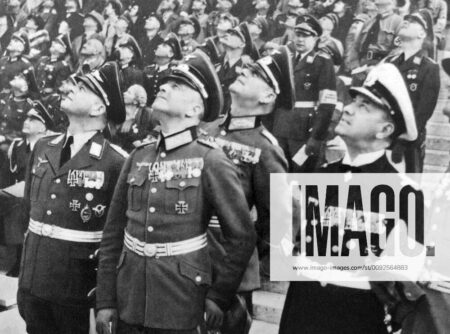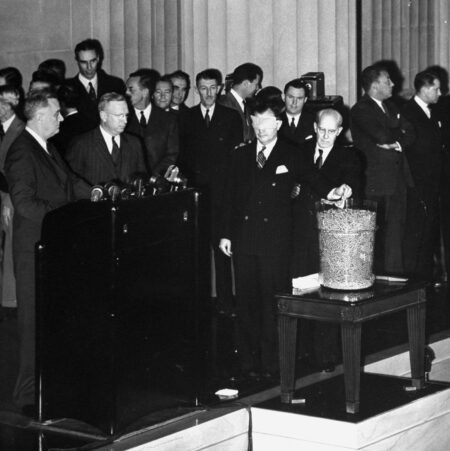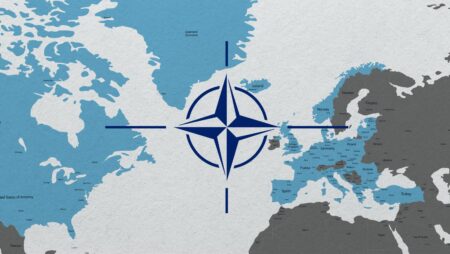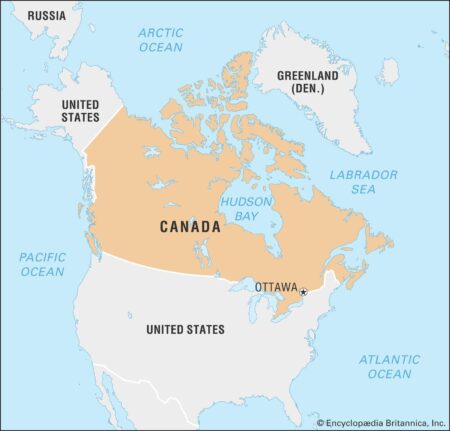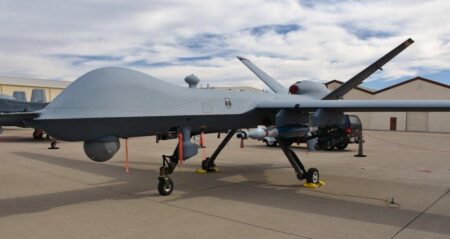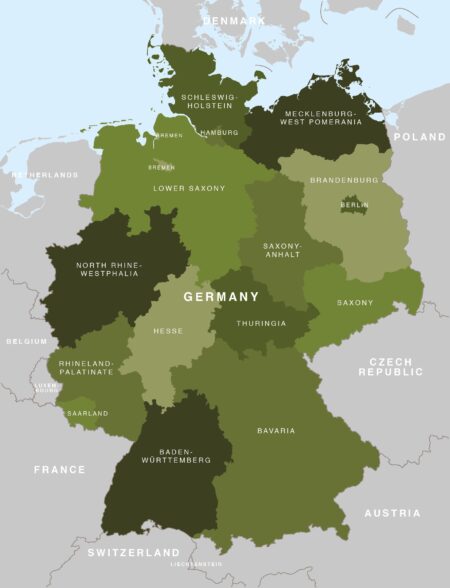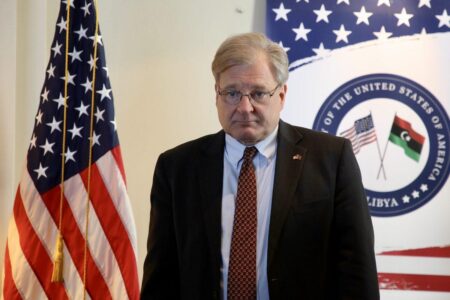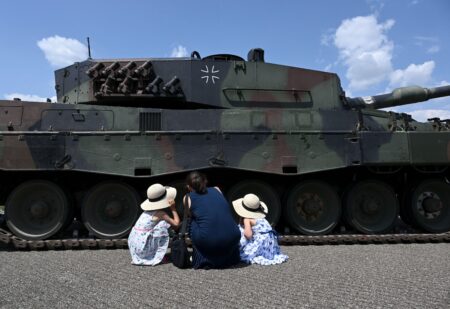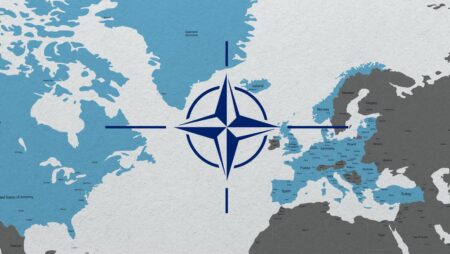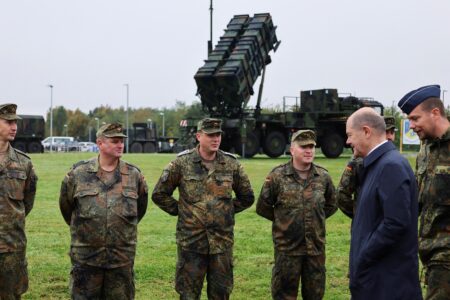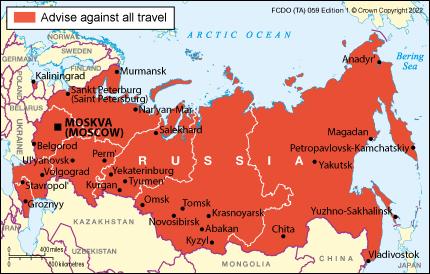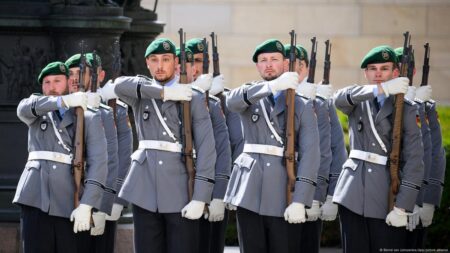A senior German general passionately called on Europe to boost its support for Ukraine, highlighting the urgent need to stand firmly with Kyiv as the conflict continues. He emphasized that united action is not only strategically vital but also a profound moral obligation
Browsing: Defense Policy
A fiery debate over conscription is rocking Germany’s Russia strategy, revealing sharp divisions within the government on military policy as tensions with Moscow continue to escalate, reports Courthouse News Service
Australia must adopt bold, unconventional strategies to effectively counter the rising influence of China and Russia, a recent think-tank report reveals. Enhancing cyber defenses and building strong strategic alliances are crucial moves to protect national security amid an increasingly volatile geopolitical climate
A small town that once hesitated over rearmament is now paradoxically gearing up to build tanks-revealing the community’s complex emotions amid rising national defense demands. Here, caution intertwines with opportunity as locals strive to balance their concerns with the promise of economic growth
Spain’s parliament has made a bold and unprecedented move by approving an arms embargo on Israel, marking a significant moment for a NATO member and reflecting rising global unease. Israeli Prime Minister Netanyahu responded with fierce condemnation, underscoring the mounting tensions sparked by this contentious decision
Germany’s Defence Minister urges strong defenses while warning against falling into Putin’s “escalation trap,” cautioning that overreactions risk escalating tensions and destabilizing the region, Reuters reports
Canada has unveiled the Defence Investment Agency, a bold move to accelerate and streamline military procurement. This initiative is set to enhance operational readiness and strengthen the nation’s defense capabilities amid escalating global challenges
The UK and France are teaming up to strengthen their nuclear alliance, determined to boost their deterrence against Russia. This powerful partnership aims to sharpen defense capabilities amid rising geopolitical tensions sweeping across Europe
Spain has made a bold move by blocking US military arms shipments to Israel from passing through its bases, fueled by deep concerns over regional stability. This decision marks a significant turning point in Spanish policy as tensions soar across the Middle East
Germany is gearing up to give its military the authority to take down unauthorized drones invading its national airspace. This decisive move marks a significant leap in the country’s defense approach, aiming to strengthen security amid a surge in drone-related threats
Germany’s recent weapon freeze has sparked a vibrant debate: is it just a symbolic political gesture, or does it signal a significant change in policy? Experts at the Stimson Center delve into the implications for global security and the future of arms control
Western diplomats have delivered a powerful warning to Russia: NATO is prepared to shoot down any warplanes that breach its airspace, Bloomberg reports. This urgent alert underscores the escalating tensions amid ongoing regional conflicts
Germany is ramping up its drone defense efforts amid escalating tensions with Russia. This bold strategy aims to strengthen national security by tackling new aerial threats head-on in a rapidly evolving geopolitical landscape
Japan has deployed fighter jets to NATO bases throughout the US, Canada, and Europe, strengthening security alliances, advancing joint missions, and delivering a bold statement of resolve amid rising geopolitical tensions, the Atlantic Council reports
Germany has launched an ambitious €80 billion rearmament plan, putting European and domestic weapons front and center while pushing US arms suppliers to the sidelines. This bold strategy signals a major shift amid rising geopolitical tensions
Germany’s €80 billion defense shopping spree thrusts European arms into the spotlight, sidelining US weapons and signaling a bold new direction in procurement strategy. This decisive move underscores Berlin’s dedication to boosting domestic industries in the face of mounting security challenges
NATO faces urgent pressure to accelerate innovation as Russia’s expanding drone arsenal brings new and escalating security threats. Experts stress that rapid adaptation is crucial to maintaining a strategic advantage
Germany’s military is launching an ambitious transformation to tackle rising global tensions head-on. Yet, experts warn that logistical challenges, limited budgets, and political conflicts could stall progress and jeopardize Europe’s security
CDU leader Friedrich Merz raises a stark warning as Russia eyes “part of Germany” amid rising tensions. He stresses that recruiting women into the military may soon be crucial to bolstering the nation’s defense, underscoring mounting security threats
The German cabinet has just approved the return of voluntary military service, paving the way for possible conscription amid rising security threats. This decisive step marks a significant shift in Germany’s defense approach

